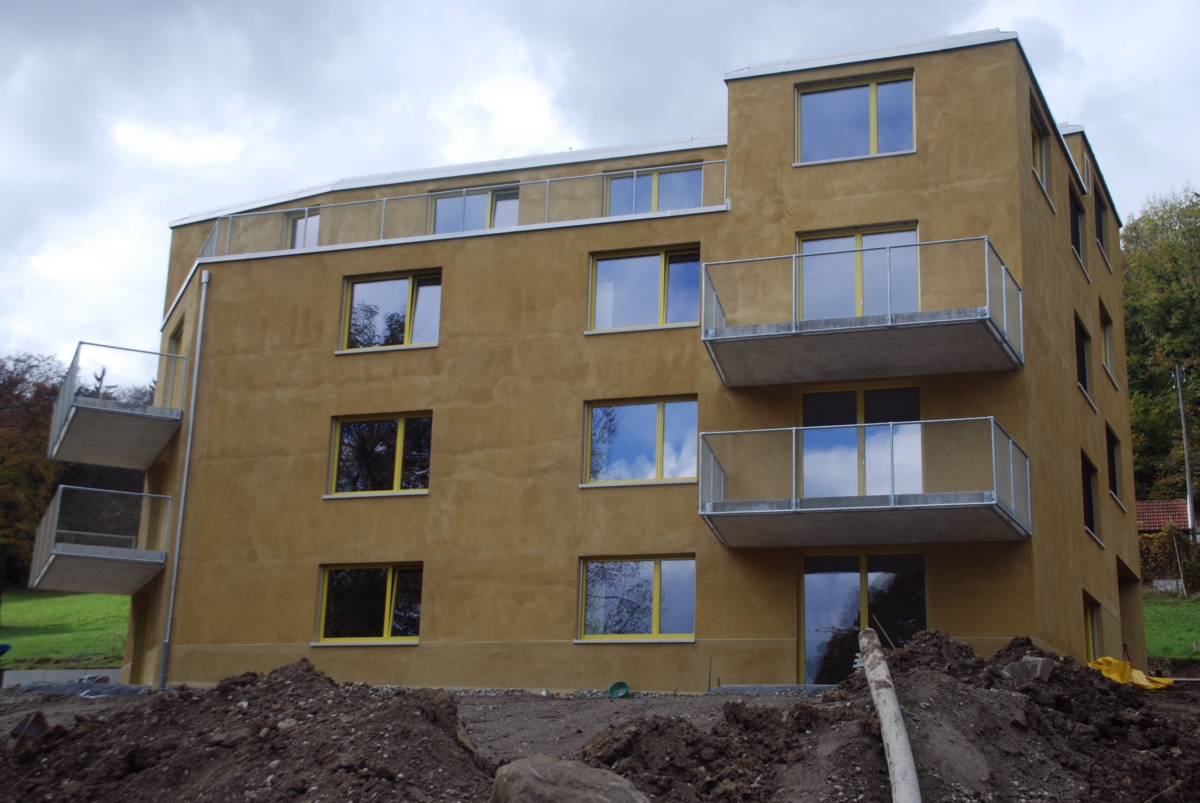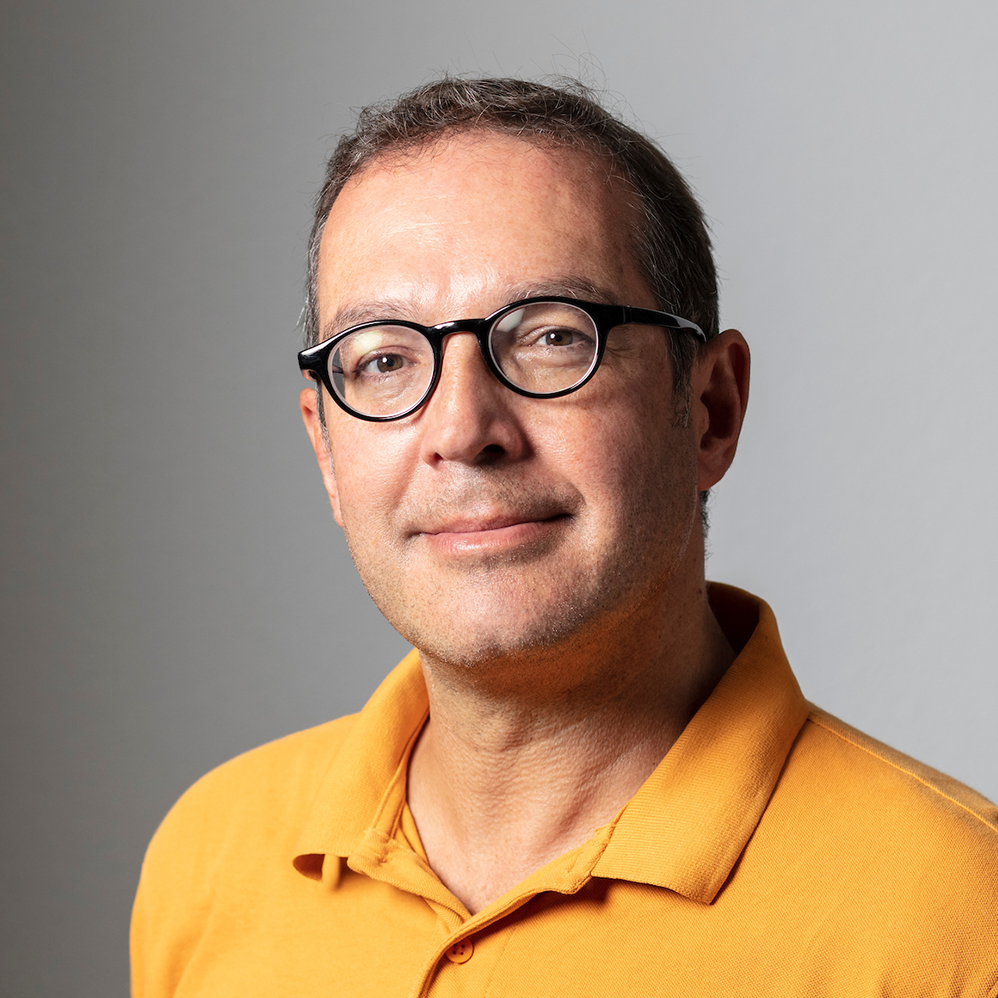
The cleanest house in Europe

The first non-allergenic block of flats opens outside Zurich next month. That's good news for sufferers of Multiple Chemical Sensitivity (MCS), for whom the smallest amount of chemicals in the air can trigger asthma attacks, skin disorders or depression.
Christian Schifferle opens the door of his car, a Japanese model with many kilometres on the clock and visible signs of wear and tear. He asks me how I came to our appointment.
When he learns that I travelled by train, he immediately lays an old rug on the passenger seat and explains: “I am doing this so the smell of perfume which some people use isn’t left on the seat.” The steering wheel is protected by a plastic cover. “My hands are very sensitive.”
The 59-year-old Swiss is suffering from MCS. He is extremely sensitive to pesticides, perfumes, deodorants, lotions, detergents, dyes, cigarette smoke, flavourings, carpets… and so the list goes on.
But his suffering is not limited to chemicals. He also cannot tolerate the electromagnetic waves of mobile phones and the smells of electrical appliances such as televisions or computers. The consequences are a life spent in social isolation.
“Since my childhood, I have reacted strongly to a variety of fragrances. I suffered from chronic fatigue,” says Schifferle and remembers how he was rejected by his family and treated as mentally ill.
About 5,000 people are believed to suffer from MSC in Switzerland, but the disease has not yet been officially recognised.
While some doctors doubt its existence, others maintain that chemical substances in the environment really can lead to serious health problems.
“Even if the causes have not been fully explained scientifically, these people and their suffering are real,” says Roger Waeber from the Federal Office of Public Health.
MCS – chemical intolerance, environmental illness or chemical sensitivity – is a rare allergy, which causes eye irritation, a runny nose, breathing difficulties and headaches when the person is exposed to chemicals in everyday life.
These can include new clothes, the smell of cosmetics, car fumes and alcohol. The main cause is the interior pollution of buildings.
The sensitivity is exacerbated by the presence of chemicals in the air, which come from dyes in the walls and furniture as well as detergents and computers. Exposure to light and moisture promotes the growth of micro-organisms.
The immune system of those affected is in a constant state of alert and every time they are exposed to a new chemical substance, this leads to a chronic allergic reaction that often renders them incapable of working.
New life
He could not find a job and for more than 20 years has lived on a disability pension. He spends most of the year in a caravan near Davos. All interior walls are lined with aluminium foil. “This material is excellent for isolating smells,” he said.
The rest of the time he lives in a small apartment in the centre of Zurich. There he often uses the bathroom as his bedroom because the tiles make it a completely neutral environment.
The new block of flats for MSC sufferers is at the end of a road at the foot of a hill close to a forest in the working class neighborhood of Leimbach, southeast of Zurich.
Workers are busy installing the heating and plastering. Excavators are at work in the garden and sinking electricity cables in the ground. On December 1, the new residents move into the 15 apartments. One will belong to Schifferle, fulfilling a long-held dream. “After so many years living in a caravan, I will finally have a home,” he says.
The Zurich authorities planned this project about five years ago. The city government addressed the problems of MCS patients and their difficulties by setting rents they could afford, donating the land and financing the construction of the building.
Costs totalled CHF6 million ($6.5 million), financed largely from the housing subsidies fund. Due to the special needs and the use of new technologies, the construction costs were 25% higher than average.
Complex problem solving
The 1,200 square metre plot was selected on biological criteria – no pollution and far away from antennae and production zones. Specialists tested how well MSC sufferers tolerated the building materials.
The strong sensitivity of these individuals to organic matter rather limited the choice and forced engineers to search for new techniques and technologies. Smoking was forbidden on the building site and no foams, solvents or other “harmful” substances could be used.
Unlike most buildings, the cement could not be bought as ready-mixed concrete but had to be prepared on site to avoid the use of antifreeze. So work had to stop every time temperatures fell below 0°C.
To prevent electromagnetic waves, engineers used fibreglass wherever possible, instead of steel frames. The electrical cables have been specially treated and there are only a few sockets protected with covers.
The usual wooden window frames were replaced by plastic ones. The floor is made of stone, the ceiling of raw cement and all interior walls are only painted with lime.
To guarantee the air quality, the building was designed according to the so-called onion skin principle: The further you walk into the building, the cleaner the air. At the apartment entrance, it is like passing through a filter where residents or visitors can change clothes or put them straight in the washing machine.
You pass through a massive door to get into the various rooms. All are connected by a powerful ventilation system, which extracts all the harmful odours and fumes.
Strict regulations
The rent for apartments of 50 to 88 square metres ranges from CHF1,180 to CHF2,595 a month and is co-financed by the city. Those wishing to rent must present a doctor’s certificate and comply with strict rules, if adopted.
Smoking is prohibited, you can’t fry meat or use perfumes, fragrances, mobile or wireless phones. Noise should be avoided, the walls left unpainted and no disinfectants or other non-approved cleaning agents should be used.
This pilot project is of great importance for Zurich. All technical data have been recorded and could be used in the future for other “clean” buildings. The residents have also agreed to make themselves available for a long-term study at the University of Bern.
The many rules and regulations don’t worry Christian Schifferle at all: “The construction of this building has symbolic value for me because I have been labelled a malingerer for nearly 20 years. It means acknowledging our problems and an opportunity to improve our quality of life,” he says proudly.
(Translated by Vincent Landon)

In compliance with the JTI standards
More: SWI swissinfo.ch certified by the Journalism Trust Initiative






























You can find an overview of ongoing debates with our journalists here . Please join us!
If you want to start a conversation about a topic raised in this article or want to report factual errors, email us at english@swissinfo.ch.